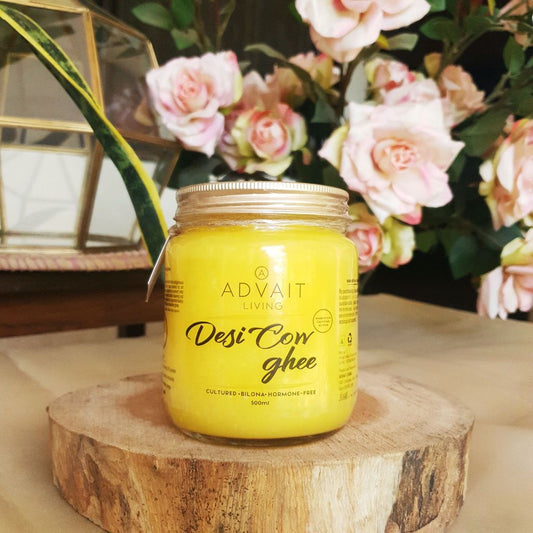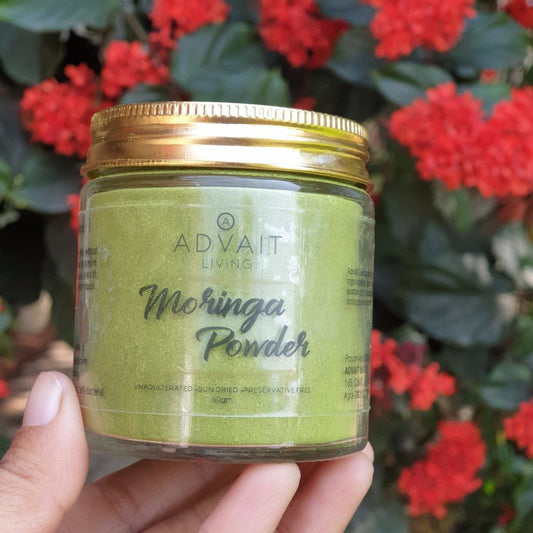For centuries, Holi, the vibrant Festival of Colours, has been celebrated across India with great enthusiasm, marked by splashes of colour, joyous gatherings, and the cooling embrace of Thandai—a milk-based drink infused with dry nuts and aromatic spices. Holi, observed on the full moon of the Hindu month of Phalgun, symbolizes the arrival of spring and the victory of good over evil.
The celebrations begin with Holika Dahan, a ceremonial bonfire on the night before the full moon, representing the burning away of negativity. The next day, the streets come alive with people dressed in white, playing with colourful powders, dancing, and revelling in festive cheer.
The Timeless Tradition of Thandai
No Holi celebration is complete without thandai, whose name originates from the Hindi word thanda, meaning “cool.” This traditional Indian drink, cherished for its refreshing and medicinal properties, is believed to help the body transition from winter to summer. Thandai is deeply rooted in Indian culture, not just as a festive delicacy but also as a symbol of community, harmony, and joy—a drink that transcends societal boundaries on a day when everyone comes together in celebration.
Beyond its festive importance, thandai has evolved into a versatile ingredient in modern cuisine, enhancing desserts like kheer (rice pudding), ice creams, cheesecakes, panna cotta, and even Indian sweets like barfi.
Thandai Ingredients
Thandai is a traditional drink that's made in every home on Holi. It was traditionally made a day in advance and with the entire family. The ingredients were milled on a ‘sil-batta’ (grindstone) that gave it a unique flavour. To make a rich, flavourful and nutritious drink, the following ingredients for thandai are used -
- Almonds
- Cashews
- Pistachios
- Watermelon Seeds
- Muskmelon Seeds
- Poppy Seeds
- Black pepper (Kali Mirch)
- Cardamom (Elaichi)
- Fennel seeds (Saunf)
- Saffron (Kesar)
- Rose Petals
- Milk
Many modern households now use ready-made thandai powder blends for convenience, but the traditional slow-ground method is still considered superior in taste and aroma.
Read more on ‘How to make the perfect thandai at home?’.
Nutritional Profile of Thandai
The exact nutritional content of thandai depends on the ingredients and their proportions. However, a general breakdown of its macronutrient and micronutrient content is as follows:
Macronutrients (Per 200ml serving, approximate values):
-
Calories: 180–220 kcal
-
Proteins: 5–8g (from milk, almonds, and seeds)
-
Fats: 8–12g (healthy fats from nuts and seeds)
- Carbohydrates: 15–25g (natural sugars from milk and almonds)
Micronutrients:
-
Vitamin E (from almonds, pistachios, and cashews): Promotes skin health and acts as an antioxidant.
-
Vitamin C (from rose petals and saffron): Strengthens immunity and supports skin health.
-
Vitamin B-complex (from nuts and seeds): Enhances metabolism and brain function.
-
Minerals:
-
-
Calcium & Magnesium (from milk, seeds, and nuts) – Essential for bone health and muscle function.
-
Iron (from poppy seeds, almonds, and rose petals) – Helps in red blood cell production and prevents anaemia.
-
Zinc (from seeds and nuts) – Supports immunity and wound healing.
-
Calcium & Magnesium (from milk, seeds, and nuts) – Essential for bone health and muscle function.
-
-
Antioxidants (from saffron, rose petals, and fennel seeds) – Combat oxidative stress and inflammation.
- Dietary Fiber (from fennel and seeds) – Aids digestion and gut health.
This rich combination of nuts, seeds, spices, and milk is what gives thandai its reputation as both a festive treat and a nourishing seasonal drink.
10 Science-Backed Health Benefits of Thandai
1. Boosts Immunity
Thandai contains almonds, cashews, watermelon seeds, saffron, and black pepper, all rich in antioxidants, vitamins, and minerals that strengthen the immune system. Vitamin C (from rose petals) and Zinc (from nuts and seeds) help combat infections and support faster recovery. Vitamin C is well-documented for its role in immunity enhancement.
2. Prevents Constipation
The high fibre content in fennel seeds and nuts promotes healthy digestion and prevents constipation by aiding smooth bowel movements. Dietary fibre has been linked to better gut health and improved bowel movement. This shows how thandai benefits more than just a simple refreshment.
3. Improves Digestion
Fennel seeds, poppy seeds, and cardamom in Thandai stimulate digestive enzymes, reduce bloating, and prevent acidity. These ingredients also help soothe the stomach lining and prevent indigestion. A review by Badgujar et al., (2014) shows that fennel has carminative properties that aid digestion.
4. Boosts Energy
Rich in healthy fats, plant proteins, and natural sugars from milk and nuts, holi thandai serves as a natural energy drink during long festive celebrations. The B-complex vitamins present in nuts and seeds help convert food into energy efficiently and support overall metabolism, a role highlighted in a review by Kennedy (2016) on B vitamins and brain and energy function.
5. Fights Off Infections
Ingredients like black pepper and saffron contain natural antimicrobial properties that may help protect against bacterial and viral infections. Traditional preparations like kesar thandai are often valued not just for flavour but also for these protective properties.
6. Detoxifies the Body
The combination of poppy seeds, fennel, and cardamom helps flush out toxins from the body. These ingredients have mild diuretic properties, aiding in kidney function and detoxification. Traditional preparations like shahi thandai often include these spices not just for flavour but also for their digestive and cleansing properties.
7. Boosts Hydration
Hydration plays a crucial role in temperature regulation and metabolic functions. With its milk base and hydrating ingredients like rose petals and fennel seeds, thandai on Holi helps the body stay refreshed and hydrated.
8. Reduces Stress
Saffron, almonds, and rose petals in thandai have adaptogenic and mood-enhancing properties that help reduce stress and anxiety. Saffron is particularly known for its role in improving mood and reducing symptoms of depression (1). Variations like kesar pista thandai combine flavour with these naturally soothing ingredients.
9. Prevents Allergies and Common Cold
Thandai’s anti-inflammatory and antimicrobial properties (from black pepper, saffron, and rose petals) help protect against seasonal allergies, sore throats, and common colds. Black pepper has been found to have anti-inflammatory and immune-boosting properties. Warm spice-based versions such as badam kesar thandai are traditionally consumed to help the body adapt to shifting temperatures.
10. Promotes Brain Health
The presence of nuts, seeds, and saffron in Thandai contributes to cognitive function, memory enhancement, and neurological health. Almonds and cashews are rich in Vitamin E and Omega-3 fatty acids, which support brain function. Consuming badam thandai regularly, especially when prepared with a high proportion of almonds, may help support focus and overall cognitive wellness as part of a balanced diet.
Reference: Research has linked nuts and seeds to cognitive health and reduced risk of neurodegenerative diseases (2).
Conclusion
Thandai is not just a festive indulgence but a nutrient-rich health drink with numerous benefits. The benefits of drinking thandai range from boosting immunity to improving digestion, reducing stress, and promoting brain health. Its blend of natural ingredients makes it a functional beverage that can be enjoyed beyond special occasions, particularly in warm weather, to stay hydrated, energized, and healthy.
Choosing the best thandai often means opting for homemade blends or clean-label options instead of overly processed versions. Many people now prefer convenient preparations like thandai mix powder. When purchasing thandai powder online, it’s worth checking ingredient quality to truly enjoy its benefits without unnecessary additives. By incorporating such homemade or preservative-free thandai into your diet, you can reap its many advantages while enjoying its delicious and refreshing taste.
Also read: Thandai Reimagined: 14 Unique Recipes to Try With Organic Thandai Powder
Frequently Asked Questions
1. Is Thandai good for weight loss?
Thandai contains nuts, seeds, and milk, making it calorie-dense rather than a weight-loss drink. However, when consumed in small portions with limited sugar, thandai can support satiety and digestion, which may indirectly help with weight management.
2. Can we drink Thandai at night?
Yes, thandai can be consumed at night in moderation. Because it contains nuts and milk, some people may find it heavy to digest late in the evening, so a lighter preparation using a good-quality thandai powder may be easier on the stomach.
3. Is drinking Thandai good for health?
Yes, thandai offers nutritional value due to its blend of nuts, seeds, and spices. The health benefits depend on the ingredients used, portion size, and sugar content, with traditional preparations offering better nourishment than highly sweetened versions.
4. Is Thandai good for acidity?
Thandai can help soothe acidity because of cooling ingredients like fennel, cardamom, and rose petals. However, full-fat milk may trigger symptoms in some individuals, so plant-based milk alternatives can be a better option for those prone to acidity.
5. How much protein is in 1 glass of Thandai?
A traditional milk-based thandai typically provides about 6–8 grams of protein per 250 ml, mainly from milk and nuts. Protein content may be lower in sweetened products like thandai syrup compared to nut-rich blends.






































